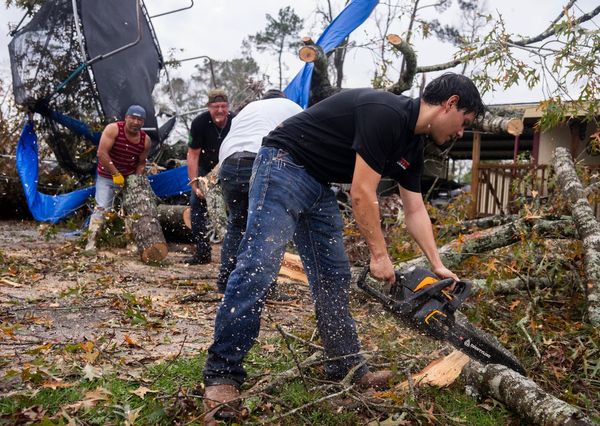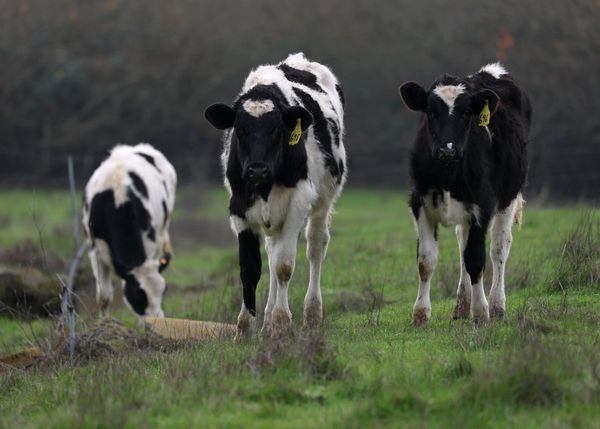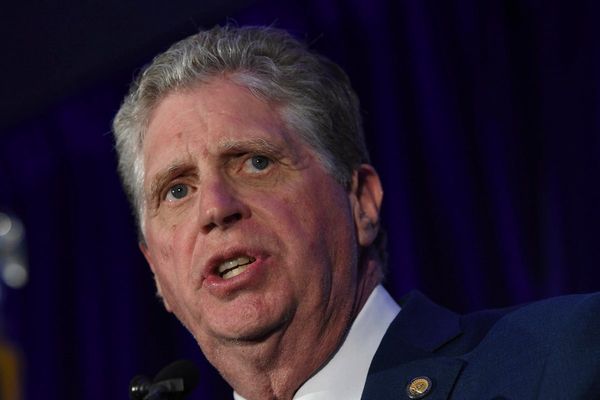
As a gay Asian man who works in the tourism industry and loves to travel himself, Romey Louangvilay’s goal is to make travel more inclusive for everyone.
A finalist in Forbes’ 2016 Top 30 Under 30 in Marketing & Advertising, Louangvilay is head of communications, overseeing public relations, social media and influencer marketing, at a full-service New York City-based marketing agency where his accounts include Tourism Authority of Thailand, Guana Island in the British Virgin Islands and ASEAN (Association of Southeast Asian Nations).
In honor of PRIDE Month, I asked Louangvilay to share his thoughts and tips on how to make LGBTQ travel easier and safer.
You are a world traveler and you also work in the tourism industry so I want to talk about your experiences on both sides as a gay Asian man. Let’s talk about being a traveler first. What’s different about planning a trip as a straight man vs as a gay man? And how does being Asian add another layer to that?
I absolutely love traveling, primarily to meet different people from various cultures. I grew up in Huntsville, Alabama in the ‘90s and, let’s face it, my exposure to different cultures, ethnicities, and, overall, a different point of view, was very limited. That’s probably why I always had the travel bug – because I wanted to get as far away from Alabama as I could. And now I travel for a living.
In terms of traveling as a straight man versus being a gay man, there really isn’t that much different in terms of the overall process. Whether you’re gay or straight, you still want to visit all the cultural sights, hidden gems, nightlife, and even some touristy activities that you want to brag to your friends. All of those remain similar.

I would say the biggest difference is that I tend to do a bit more research to see if an area is gay-friendly as well as their customs and views on LGBTQ people. I wouldn’t want to travel or explore an area where being part of the LGBTQ community is illegal, and of course, I like to support LGBTQ-friendly businesses.
I tend to travel alone mostly since it’s for work, but when I get down time, I would be lying if I didn’t say I get nervous. Being a gay Asian man does tend to add another layer of insecurity when I travel. It all stems from how I grew up. I had very little exposure to what an Asian man was supposed to be like since we weren’t really featured in news or TV back then. My worth as a human being was always compared to what I saw in media as successful, good looking, and confident, which was mostly a white male. Since I’m Asian (a dark Asian at that), I felt that I wasn’t good enough or that I measured up to what was the ideal of a successful man. Even though this insecurity does stem from childhood, those insecurities pop back up if I visit a gay bar because I feel inadequate. I’m older now and I still get some of those insecurities but I have worked on overcoming them.
Furthermore, when I visit countries that may not be well exposed to Asian people, I do hear Asian jokes. I’ve been to Latin America and Caribbean, where people would call me “chinito” or “el chino,” which means Chinese – I’m Thai and Laotian – adding to the misconception that all Asians are the same.
What’s your biggest concern when you’re traveling to other countries?
My biggest concern is making sure they’re LGBTQ-friendly. I’m what people describe as “passable” but you never know if an area and the locals are accepting or very closed off. Because I travel solo a lot of the time, it is always a little nerve wrecking to be in a place I’m not familiar with – especially at night – and I tend to have my guard up. For instance, there were some news reports of men downloading a hookup app to find other gay men in order to attack them. That’s always in the back of my head.

Which countries have been the easiest for you?
Thailand is probably the easiest to travel to as a gay man. I love this country, and I’m not just saying it because I work with them or because I’m half Thai! They’re very open and accepting. I love the fact they accept the transgender community for who they are and welcome everyone.
Most businesses in Thailand, and Bangkok especially, are very LGBT-friendly and some cater exclusively to gay men. Whenever I travel here, I feel like I’m returning home. As a marketer for Thailand, we also promote the phrase, Go Thai Be Free, which essentially is our motto for “no worries.” If you give out good energy and vibes, you get it in return. This is how I feel when I visit Thailand.
Another thing I love about Thailand is the hospitality. Regardless of background, the hospitality is unbelievable. Going to a 5-star restaurant in Thailand is like going to a 7-star in America. The wait staff goes the extra mile, everyone greets you with the wai, and the locals are just genuinely nice people who want to ensure you have a good experience.
Does being gay always come up in some way when you’re traveling?
The only time it comes up is when I meet with locals. I like to visit cafes or bars that locals recommend, and when I try to strike up a conversation, they will often ask me something like “Oh, so does your girlfriend mind you traveling so much?” Or if I’m asking how to get to a gay bar, then people assume I’m gay.
What tips would you share for gay people traveling to some of the less LGBTQ-friendly countries?
For anyone traveling to a country that isn’t as open or LGBTQ-friendly, I would give them these tips:
- Read recent articles about that particular country’s view on LGBTQ
- Visit peer review websites like TripAdvisor and Yelp. A lot of the times I take the advice of an actual traveler over a news article. They give you the real experience as a tourist and some will have tips on areas to avoid.
- Depending on the country and its local laws, I would delete any hookup apps and be cautious when traveling.
- Learn the destination’s customs.
- I would encourage them to join a travel group like Travel Massive and ask the community if anyone has been to that particular destination.
- Listen to trusted peers’ advice.

How do you research which countries ARE LGBTQ-friendly?
There isn’t one resource I use to research but I really do like Out Adventures. They are travel agents that focus on gay men as an audience so this is perfect for me when I need destination ideas or activities to do. I met them through my work with Thailand as LGBT is an audience we target, and I love how they find fun activities and experiences (that anyone could enjoy) in an environment for LGBT people to feel at ease.
I also subscribe to Out There Magazine and Man About World, which are publications that focus on travel in the LGBTQ community. They tend to have beautiful stories from locals and they give me ideas on what to do when I travel for work.
If I am traveling for pleasure to a different country, I just Google the country + LGBTQ to see if there are recent articles or peer reviews (e.g .Trip advisor, Yelp) about the destination’s point of view on LGBTQ.
Have you traveled at all with LGBTQ tour groups? Can you share your thoughts about them?
Do work FAM trips count? 90% of my travel is for work so I have been to Thailand on a LGBTQ press trip in which we worked with Out Adventures. While the activities can be done by anyone, whether you’re gay or straight, the atmosphere and environment is definitely catered to gay men. You don’t feel as if you’re pretending to be a macho straight man doing zip-lining or hanging out with elephants. Instead, you know you’re amongst other LGBTQ members and you’re doing normal activities. It just makes the vibe more relaxed and fun.
Do you think it helps to boycott places that are outwardly intolerant toward gay people or is it better to go and actually meet people and try to change their minds?
I think it’s a combination of both. Boycotting hurts their pockets, which unfortunately is how the world works – money. But with any boycott, I advise to do proper and thorough research as to not fall in a rabbit hole of theories, and instead, find credible news stories and trusted peers to understand why something should be boycotted.
Once the boycott captures their attention, I do think it’s helpful to visit officials in that destination to explain respectfully why a boycott took place and why the point of view is important enough to be heard. Hopefully with boycotting and an in-person discussion, their minds would evolve to be more accepting over time.

You work with many Asian countries. Tell us a little about them, as they relate to LGBTQ travel.
You know, the funny thing is I hated being Asian as a kid. I was a self-hating Asian mainly because I didn’t have access to Asian representation in media. So I would refuse to learn or speak Thai or Lao, and I would only eat American food. That scene in “Fresh Off The Boat” where Eddie Huang’s character says, “Mom I need white people food” was the same exact thing I told my mom in the third grade when kids made fun of me for bringing sticky rice, chicken and jaew sauce. It wasn’t until college when I learned to really appreciate my heritage since I moved to Atlanta where I was exposed to more people. Now, in marketing, I always push to show diversity in our campaigns and hire people with different backgrounds to show more inclusivity.
So it’s funny now that all my clients are primarily Asian-based. I work with Thailand for digital marketing and some of their wellness initiatives. Thailand has a website called GoThaiBeFree.com, which is an online news blog and guide for LGBT travelers to Thailand. They really care about this audience. We’re actually in the middle of a sweepstakes to send one winner to Bangkok next year and attend gCircuit, which is the big gay Songkran party that is attended globally.
I am also working with Sport Illustrated cover supermodel Mia Kang on her Muay Thai retreat she’s co-hosting with 109World. The retreat is female empowerment (and for gay men) who suffer confidence, body issues. Mia suffered from anorexia during her modeling career and suffered a breakdown before discovering Muay Thai, which helped her overcome it and accept her weight gain. The proceeds from the retreat also go to Wor. Watthana which is a home for kids in the Issan region with no homes and they provide Muay Thai training. This is great because even the Muay Thai coaches don’t care if you’re LGBT or straight. All they care about is if you can punch and kick, which is what I love.
I also work with ASEAN, the Association of Southeast Asian Nations, which is comprised of 10 countries, including Thailand, Laos, Vietnam, Cambodia, Brunei, Indonesia, Philippines, Malaysia, Singapore, and Myanmar. Each of these countries work together to form ASEAN tourism (I refer to it as Southeast Asian Tourism when I speak to reporters or consumers since its more recognizable), and each country has their own point of view on LGBTQ. Most of Southeast Asia is accepting of LGBTQ.
How can straight people help the LGBTQ community in terms of travel?
They can be more vocal in supporting the LGBTQ community. We need allies and if they see, hear, or read about someone being discriminated for being LGBTQ (or anything for the matter), they need to speak up. This can be done in the form of an email to officials, social media comments, and even sharing news about it on their channels.
Everything starts with a conversation, and so does helping the community when traveling.
Is there any message or anything else you’d like to share?
Traveling is one of the best experiences you can have. At least once in your life, travel to a different country and experience how they live. That memory will stay will you forever, and that’s how the world changes.







